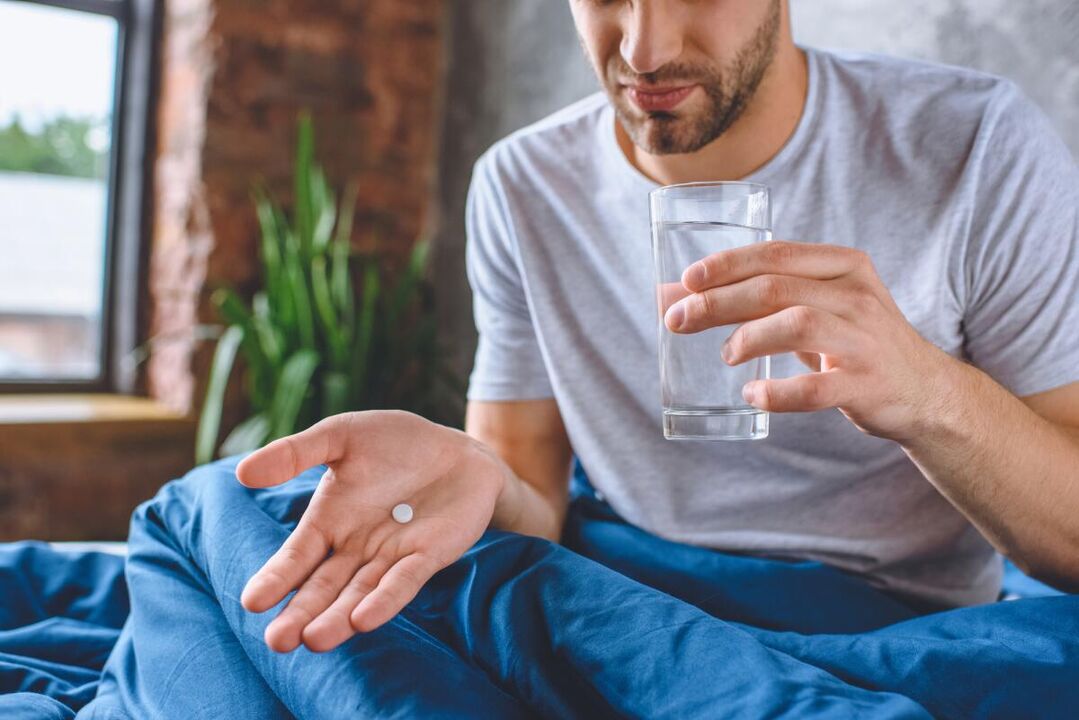Prostatitis has become a common disease not only among men over 50, but also among young people. One of the reasons is self-medication: using an inappropriate drug for prostatitis will not eliminate the disease, but only weaken the symptoms. The choice of medicine should be justified by the type of disease and the nature of its course.

How to choose a medicine for prostatitis?
Complex treatment of prostatitis includes drugs from several pharmacological groups.
| medicines by groups | pharmacodynamics | types and forms of prostatitis |
| nonsteroidal anti-inflammatory drugs | relief of inflammation and pain and muscle spasms, normalization of urination | all types and forms of the disease in an individual dosage |
| muscle relaxants and antispasmodics | ||
| complex preparations based on medicinal plants and nutritional supplements | improving blood circulation in the prostate, removing congestion, relieving inflammation | |
| bioregulatory peptides | ||
| immunomodulators | increasing immunity | |
| alpha-blockers and 5-alpha-reductase inhibitors | reducing the volume of the prostate gland, normalizing the flow of urine in case of poor urination | all forms of prostatitis, prevention and treatment of prostate adenoma (benign tumor) |
| phosphodiesterase inhibitors | facilitating the emptying of the bladder, stimulating the prostate, restoring erectile function | chronic prostatitis, weakened potency |
| analgesics | eliminate pain symptoms | for acute prostatitis |
| antibiotics | killing bacteria | infectious bacterial prostatitis |
| hormones | restoration of hormonal levels and the work of the glands | advanced chronic disease |
| antiviruses | destroying viruses and suppressing their ability to reproduce. Removal of swelling and pain in the prostate, reduction of temperature | infectious viral prostatitis |
List of the most effective drugs for prostatitis
Treatment of prostate diseases is carried out by medical specialists: andrologist or urologist. Medicines are prescribed based on the results of the examination, laboratory tests and ultrasound examination of the prostate.
Nonsteroidal anti-inflammatory drugs (NSAIDs)
Medicines that stop the development of inflammation. Not to be used in chronic heart, kidney, liver, stomach and duodenal ulcers.
important! Taking NSAIDs can cause gastrointestinal side effects.
Antibacterial therapy for infectious prostatitis
To eliminate the infection, antibiotics from the group of cephalosporins, semi-synthetic penicillins, fluoroquinolones and macrolides are used.
| release form | tablets and powders for preparation of injection solution | injection | capsules, tablets | |
| group of antibiotics | fluoroquinolones | penicillins | cephalosporins | macrolides |
| No Apply |
renal decompensation | infectious mononucleosis, lymphocytic leukemia | chronic kidney and liver pathologies in the stage of decompensation | |
| application method | tablets - 1000 mg/day, divided into two doses, drip application from 200 to 800 mg once |
250-500 mg 3 times a day | 1-2 g/day, with a single injection of a medicinal solution with lidocaine 1% | 250-500 mg 2 times a day |
Alpha blockers and 5alpha reductase inhibitors
Alpha-blockers have a hypotonic effect, blood pressure is monitored during treatment.
| Active ingredient | tamsulosin hydrochloride | dutasteride | tamsulosin dibutyl sebacate | |
| release form | capsules | pills | capsules | capsules |
| dosage | 1 dose per day, 0. 4 mg | 1 time/day, 1 tab | 1 dose per day, 1 capsule | once daily 0. 4 mg |
| action | reduces the tone of the smooth muscles of the urethra and prostate gland, improves the flow of urine and the exchange of substances in the muscles of the bladder, helps to eliminate the stagnation of prostate secretion | |||
| contraindications | individual allergic reaction, orthostatic hypotension, liver failure | |||
The duration of the course of treatment with alpha-blockers and 5-alpha-reductase inhibitors is determined individually.
Bioregulatory peptides
Medicines can quickly get rid of the severe signs of prostatitis and restore the disturbed processes in the prostate gland.
There are no contraindications except for individual allergies. Bioregulatory peptides are available in pharmacies without a prescription.
Muscle relaxants
The muscle relaxant prevents the destruction of prostate cell membranes, relieves pain by inhibiting the conduction of nerve impulses and increases blood flow. The initial dose is 50 mg, with the possibility of increasing to 150 mg.
Not prescribed for myasthenia gravis. Corresponding (relative) contraindications are kidney and liver problems, epilepsy.
It is not recommended for chronic pathologies of the liver, kidneys, myasthenia gravis and epileptic seizures.
Phosphodiesterase inhibitors
The use of potency stimulants requires caution. Medical consultation is required.
Antiviral drugs and immunomodulators
All antiviral drugs have many side effects. Contraindications include: hypersensitivity to the constituent components.
Prostatitis is an inflammatory disease of the male unpaired exocrine gland - the prostate. The quality work of this organ determines the reproductive health, sexual capabilities and psycho-emotional state of men. Drug treatment of prostatitis is selected based on the etiology and form of the disease. Improper or untimely therapy threatens the development of erectile dysfunction and prostate adenoma.





























